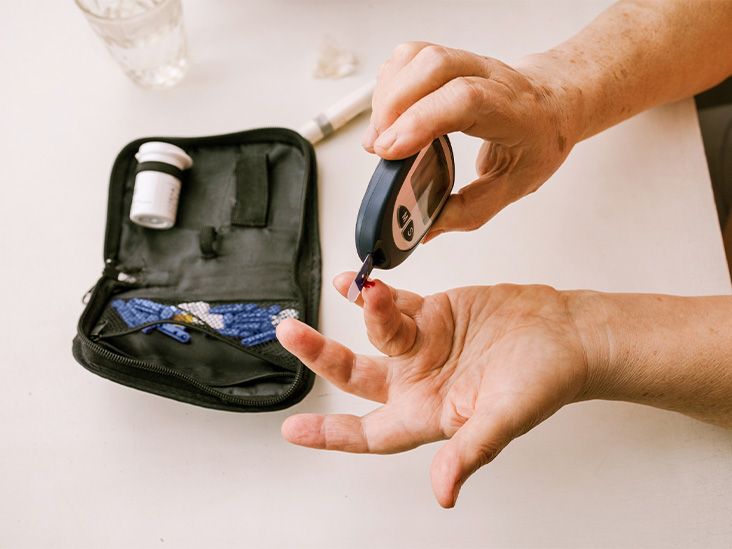Tips for soothing a sore or scratchy throat include using a humidifier, sucking on popsicles, and taking honey. However, some people may require medical treatment.
Common causes include a viral infection, such as a cold or the flu, and a bacterial infection. Most sore throats are not serious, but severe symptoms can make breathing difficult.
How a person deals with a sore throat depends on its severity and cause. Usually, home remedies can soothe the discomfort until it goes away. However, sometimes, medical treatment is necessary.

Viruses and bacteria are two common causes of sore throats.
Viruses
Many sore throats are due to viral infections, such as:
- common colds
- influenza
- the Epstein Barr virus (EBV) may lead to infectious mononucleosis, which is sometimes known as glandular fever or mono
- COVID-19
Bacteria
Strep throat is a common type of throat infection due to exposure to a strain of Streptococcus bacterium.
According to the
The person may need antibiotics to fight the infection and prevent complications. Without treatment, strep throat can increase the risk of rheumatic fever or kidney inflammation in children.
Other causes
Other common causes of a sore throat include:
- allergies
- irritation due to dry heat, pollutants, or chemicals
- reflux, which is when stomach acids come up into the back of the throat
- cold air
More severe but less common conditions that can involve a sore throat include:
- HIV infection
- tumors of the throat, tongue, or larynx
- epiglottitis
A note on epiglottitisEpiglottitis is a rare but potentially dangerous throat infection where inflammation and swelling of the epiglottis can close the airway, making it difficult to breathe.
Epiglottitis is a medical emergency. If a child or adult has the following symptoms, they need immediate medical attention:
- a severely sore throat
- difficulty swallowing and breathing
- a high pitched sound when breathing in
- drooling
- skin that looks blue, or gray in darker skin, due to a lack of oxygen
A person may experience a scratchy sensation in the throat or pain that becomes worse when swallowing or talking.
The accompanying symptoms can vary depending on the exact cause. Other symptoms that might accompany a sore throat include:
- difficulty swallowing
- sore or swollen lymph nodes in the neck or jaw area
- swollen red tonsils
- a hoarse or muffled voice
- coughing, sneezing, and a runny nose
- fever
If a person is experiencing a sore throat due to a virus or bacteria called group A Streptococcus, or strep throat, the accompanying symptoms might be similar. However, according to the
- cough
- runny nose
- voice hoarseness
- conjunctivitis
Strep throat is more common in children than in adults. The exact symptoms depend on the age, but, as well as a sore throat, they may include:
- a fever
- tender, swollen lymph nodes in the neck
- an irritated mood
- a reduced appetite
- swollen tonsils with signs of pus
- small red spots on the roof of the mouth
- a headache
- abdominal pain, nausea, and vomiting, especially in children
People with strep throat often have pain and fever without a cough.
Most sore throats go away on their own and home treatment is usually sufficient. Sometimes, however, medical treatment is necessary.
A person should speak with a doctor if they have the
- symptoms that worsen or do not get better within a few days
- breathing difficulties
- swallowing difficulties
- blood in the saliva or phlegm
- dehydration
- rash
- excessive drooling, in young children
- joint swelling
- joint pain
A doctor will ask a person about their symptoms and perform a physical examination. They may also take a swap sample to identify the cause. The doctor can take a sample by touching the back of the throat and tonsils with a cotton-tipped applicator.
They may use a swap to see if group A Streptococcus is causing the infection. If the test is negative but the doctor still suspects strep throat, they may send a sample to a lab for a culture test, to see if bacteria grow over time. If the strep test is positive, a person may need prescription antibiotics.
EBV test
If a doctor suspects EBV, they can recommend a blood test to confirm the condition.
Other causes
Sometimes, a sore throat can develop for another reason, such as a tumor. If the problem does not go away, the doctor will perform more tests to find the cause.
Most sore throats resolve without treatment, but this will depend on the cause.
If a sore throat is due to a bacterial infection, a doctor may prescribe a course of antibiotics. People should always take the complete course, even if they feel better before finishing all the medication.
Sore throats due to a viral infection do not usually need medical treatment. Acetaminophen or mild pain relievers may help with the pain and fever, and children can use pediatric versions of these medications. A pharmacist can advise which ones to use and correct dosages.
It is important always to follow the instructions on any medication and not to take more than the guidelines suggest.
If tests reveal a tumor or another cause, the doctor will discuss appropriate treatment options with the individual.
A few home care strategies
- getting plenty of rest
- drinking plenty of fluids to keep the throat moist and prevent dehydration
- using a humidifier or vaporizer
- having cold treats, such as popsicles
- gargling with warm, saltwater
- using honey to soothe a sore throat, except for children under 12 months
- lozenges or hard candy to soothe a sore throat and a cough for children over 2 years and adults
Honey is not safe for children aged under 1 year due to the risk of botulism, a type of food poisoning.
Soothing drinks for a sore throat
Consuming warm liquids can help ease the discomfort from a sore throat.
Drinks that people may consume include:
- warm lemon or water with honey
- ginger tea
- green tea
A
- licorice
- barberry
- thyme
- oregano
Zinc lozenges
The
However, the NCCIH advises people not to use zinc lozenges for more than 2 weeks. Individuals should also avoid nasal zinc products, as these may lead to a permanent and severe loss of smell.
Zinc may also interact with antibiotics, penicillamine, and other drugs.
Always check with a doctor or health professional before taking any alternative remedies to make sure they are safe to use and will not interact with another medication.
Some simple steps can help prevent infections that cause a sore throat.
For example:
- Wash the hands often, including after sneezing and coughing.
- Use alcohol-based hand sanitizers if soap and water are unavailable.
- Cough or sneeze into a tissue, throw it away, and immediately wash both hands.
- Avoid touching the nose or mouth.
- Avoid close contact with people who have an infection and stay away from others if you have an infection.
- Disinfect frequently touched surfaces, such as tabletops.
- Follow a diet and exercise plan that helps boost overall health.
- Seek advice on COVID-19 testing if symptoms may indicate a SARS-CoV-2 infection.
A sore throat can be uncomfortable, but most are not serious and usually go away without treatment. Home remedies and over-the-counter medication can soothe the symptoms.
However, a person should speak with a doctor if symptoms are severe or persistent or they have difficulty breathing. If it is due to a bacterial infection, such as strep throat, the doctor will prescribe antibiotics.
There are many different causes of a sore throat, with bacterial infections and viral infections being common.
The treatment a person requires depends on the underlying cause. For example, antibiotics can treat a bacterial infection. A person can also take pain killers to relieve a sore throat, alongside natural treatment options such as hot drinks, taking honey, or sucking on ice chips.


